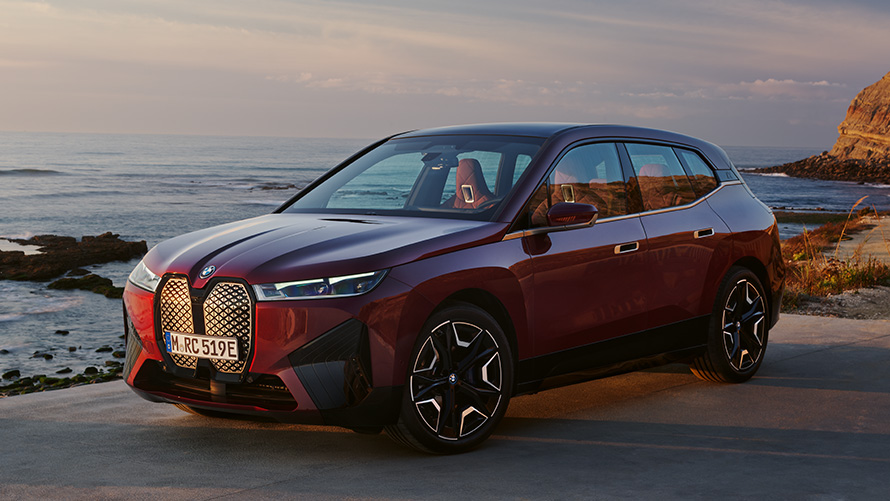BMW’s recent decision to cancel a $2 billion battery cell contract with Northvolt has sparked considerable interest and speculation within the automotive and energy sectors. The agreement, initially heralded as a significant step towards ensuring a stable supply of electric vehicle (EV) batteries, has now come to an unexpected halt.
Northvolt was two years behind schedule and was producing too many rejects. BMW had ordered the Northvolt cells for its fifth generation of batteries in EVs including the iX and i4 electric cars.
Strategic Realignment of BMW’s EV Strategy
One of the key factors influencing BMW’s decision to cancel the contract is a strategic realignment of its EV strategy. As the automotive industry rapidly evolves, car manufacturers are continually reassessing their supply chains and technological partnerships to maintain competitiveness. BMW has been intensifying its efforts to diversify its battery supply sources, seeking to mitigate risks associated with over-reliance on a single supplier. By terminating the contract with Northvolt, BMW is likely aiming to explore alternative suppliers and technologies, ensuring greater flexibility and resilience in its EV battery procurement.
Technological Advancements and Requirements
Technological advancements in battery technology are another significant factor. The EV battery market is highly dynamic, with continuous improvements in battery chemistry, energy density, and production processes. BMW may have identified more advanced or cost-effective battery technologies that better align with its future EV models. Cancelling the Northvolt contract could be a move to pivot towards these emerging technologies, ensuring that BMW’s upcoming EVs are equipped with the latest and most efficient battery systems.
Financial Considerations and Cost Management
Financial considerations also play a crucial role in such high-stakes decisions. The $2 billion contract with Northvolt represented a substantial investment, and BMW might have reassessed the financial viability of this commitment considering changing market conditions or internal financial strategies. The automaker could be seeking more cost-effective solutions or renegotiating terms with other suppliers to optimise its expenditure on battery cells. This financial prudence ensures that BMW remains competitive in the price-sensitive EV market.
Supply Chain and Production Issues
Supply chain and production issues could have contributed to the cancellation. Northvolt, like many companies in the battery production industry, faces significant challenges in scaling up manufacturing capabilities and ensuring a consistent supply of raw materials. Any disruptions or delays in Northvolt’s production capacity could jeopardise BMW’s EV rollout plans. By terminating the contract, BMW might be pre-emptively addressing potential supply chain vulnerabilities, ensuring that its production schedules remain on track.
Regulatory and Environmental Considerations
Regulatory and environmental considerations are increasingly influencing corporate decisions in the automotive sector. BMW, committed to sustainability and reducing its carbon footprint, might have encountered regulatory challenges or environmental concerns related to Northvolt’s production practices or supply chain. Ensuring compliance with stringent environmental standards and aligning with BMW’s sustainability goals could have prompted the reassessment of the partnership.
Market Competition and Strategic Partnerships
Lastly, the competitive landscape of the EV market is a critical factor. BMW’s competitors are also forging strategic partnerships and securing advanced battery technologies. By cancelling the contract with Northvolt, BMW may be positioning itself to form new alliances or enhance existing ones with other industry leaders. These strategic partnerships can provide BMW with a competitive edge in terms of technology, cost, and market positioning.
“Northvolt and the BMW Group have jointly decided to focus Northvolt’s activities on the goal of developing next-generation battery cells,” BMW said in a statement on June 20.
“The BMW Group continues to have a strong interest in establishing a high-performance manufacturer of circular and sustainable battery cells in Europe.”
The cancellation of the $2 billion battery cell contract between BMW and Northvolt is a multifaceted decision influenced by strategic, technological, financial, and regulatory factors. As BMW navigates the rapidly evolving EV landscape, its move to terminate this significant agreement underscores the complexities and challenges inherent in the transition to electric mobility.
While this decision may pose short-term uncertainties, it ultimately reflects BMW’s commitment to maintaining flexibility, innovation, and competitiveness in the burgeoning EV market. The ramifications of this decision will be closely watched by industry stakeholders, as both BMW and Northvolt adapt to the new dynamics in the quest for sustainable transportation solutions.
Author: Mark Salisbury, Editor, Fleetpoint







